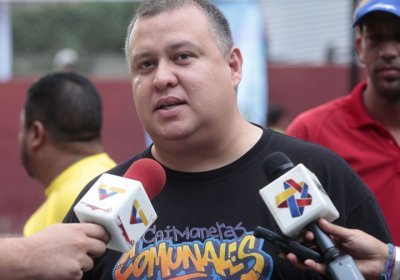Revolutionary activist and sociologist Reinaldo Iturriza has spent many years working with popular movements in Venezuela and writing on the rise of Chavismo as a political movement of the poor. He also served as Minister for the Communes and Social Movements, and then Minister for Culture in President Nicolas Maduro’s cabinet between 2013 and 2016.
Together with activists from a range of grassroots revolutionary organisations and social movements, he is standing as a candidate for the Popular Constituent Platform in the July 30 elections for a Constituent Assembly that will seek to find a political way out of the current turmoil gripping Venezuela through the drafting of a new constitution.










